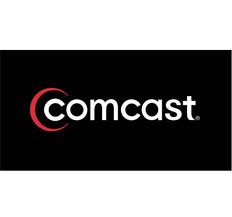 Comcast Corp. is trying to win the hearts and minds of federal regulators whose approval is needed for its $45 billion takeover merger with Time Warner Cable. One of the arguments is that Internet service will get better.
Comcast Corp. is trying to win the hearts and minds of federal regulators whose approval is needed for its $45 billion takeover merger with Time Warner Cable. One of the arguments is that Internet service will get better.
Give me a break.
Under its Xfinity brand name, Comcast has close to a monopoly on wired broadband service in Seattle. I’m here to tell you the Comcast track record is slow, unreliable and overpriced.
In my Magnolia neighborhood, I have lost Internet and Internet-supplied phone service a half-dozen times or so in the past year, for periods ranging from a few minutes to hours. In other instances the speed has fallen way below what Comcast propaganda touted. Still, my monthly Comcast bill just went up 13%.
I don’t think it’s just me. Comcast’s operational snafus in Seattle are so persistent that complaining customers are told they can use their cell phones to check on problems. This is amazing considering that Comcast, a phone service provider, doesn’t offer cells. When was the last time you repeatedly heard any company routinely refer complaining customers to direct competitors?
Meanwhile, Comcast has the chutzpah to accuse merger opponents of extortion. Give me another break.
Before becoming New To Seattle in 2011, I lived in a part of the Los Angeles area served by Time Warner Cable. In my experience, TWC was far worse than Comcast when it came to customer service and reliability. So Comcast might have a point in arguing TWC customers could see some kind of improvement. But I’d say that’s the same kind of improvement seen when a fever of 101.5 degrees drops to 100 degrees. Better, but still painful, and not right.
Visitors to this space know I have teed off before on Comcast (see here, here and here). I continue to think part of the problem on the local level is toothless regulation by the city of Seattle.
As near as I can tell, TWC offers no Internet service in Seattle or any other part of Washington State. Its customers are mainly east of the Mississippi and in southern California. So the direct impact of any merger on Internet service in Seattle would be zippo, except that it would remove the remote possibility that TWC could enter the market, which might at least lower prices.
The biggest effect would be in programming and fees for cable TV, either individually or as part of Comcast’s “double play” and “triple play” packages of bundled services. Philadelphia-based Comcast owns NBCUniversal, Telemundo, E! Entertainment Channel, and the Golf Channel while controlling access for dozens of other cable networks. It’s hard to see how Comcast’s march toward a monopoly would lower costs for customers.
And make no mistake about it. I’ve never encountered any business owners who think their pursuing a monopoly is inherently bad.
To me as a consumer, the only good thing about a monopoly is that the monopolist–it can be an individual, a company or even an entire industry divided along geographic or product lines–eventually gets greedy. The monopolist then jacks up prices. This provides economic incentives for others to develop cheaper alternatives and technologies that can damage or do in the monopolist. The famous economist Joseph Schumpeter popularized this concept of “creative destruction.” Customers reap the benefits–for a while, anyway, until the cycle begins again.
Here in Seattle, for example, there once was a time when The Seattle Times and the Seattle Post-Intelligencer, in a joint operating agreement by which they sold newspaper ads as one, controlled almost the entire local market for wildly lucrative classified ads. They were wildly lucrative because rates had been jacked up beyond all reason, providing fabulous profit margins for owners. Customers, after all, had nowhere else to go. This lasted for several decades.
Joint operating agreements in the newspaper industry clearly were local monopolies, but ones exempted from the antitrust laws in 1970 by a Congress full of elected officials trying to curry favor with local media. (Indeed, the Newspaper Preservation Act, as the exemption was called, was even signed into law by Richard Nixon, whose secret list of enemies earmarked for harassment included many journalists, making him the most anti-media president since John Adams.) But even lawmakers in the Other Washington couldn’t void the laws of economics.
A new medium–the Internet–came along. This was followed by a new outfit–Craigslist, with its free or dirt-cheap ads. Also arriving: a plethora of Web sites slicing off particularly remunerative segments of traditional newspaper advertising, such as real estate, cars and help wanted. The epic result was wealth-shifting, wealth-destroying history. Goodby monopoly. The PI shut its print edition, while The Times became considerably diminished economically. This was a story played out across the land.
Unless they start regulating a hell of a lot better, regulators ought to block the Comcast-TWC merger. Period. If they don’t, market forces some day will handle the matter. But that might take awhile. I have a heart and mind that doesn’t want to wait that long.
